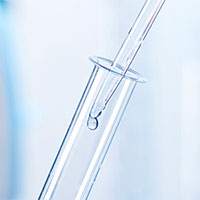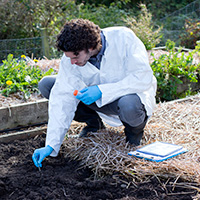Avantor helps environmental testing laboratories enhance the performance of their operations, achieving consistent, reliable results and bringing unmatched quality and purity.
We provide environmental testing chemicals that meet rigorous regulatory demands for extraction, concentration and sample cleanup protocols. We also provide convenient access to a full range of chromatography, consumables and tools for sample collection and analysis.






